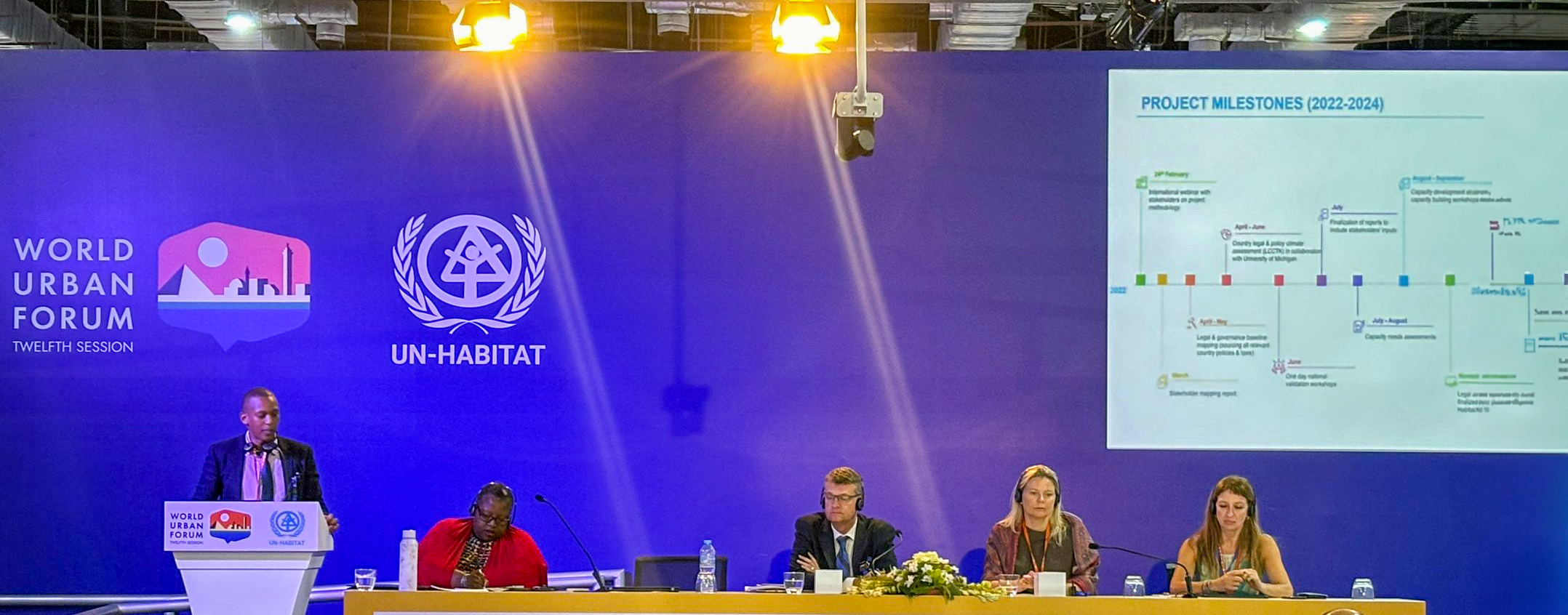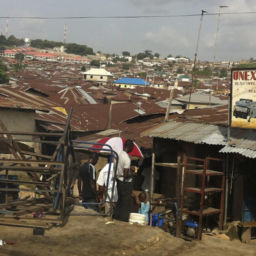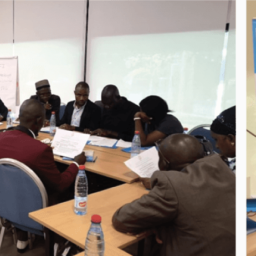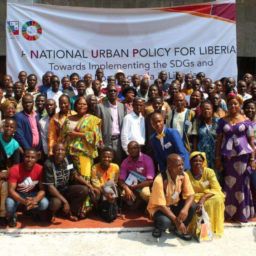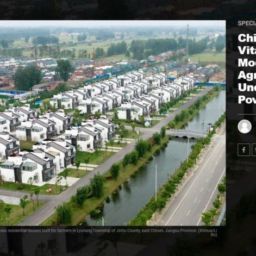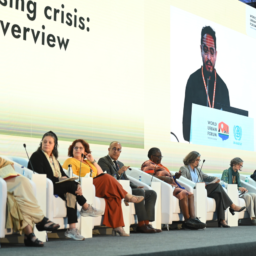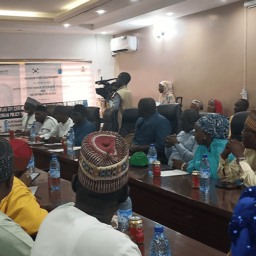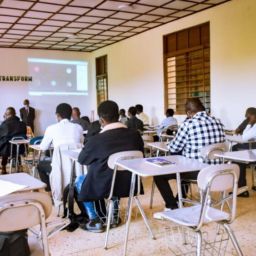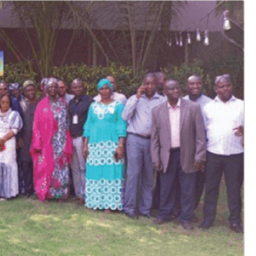Cairo, 5 November 2024
Tackling the Intersection of Climate Change and Urban Legislation
On November 5, 2024, in Cairo, 65 multidisciplinary participants gathered at the networking event “Promoting Climate-Resilient Cities Through Climate-Smart Urban Laws” to explore how innovative legal frameworks can address climate vulnerabilities. Moderated by Mr. Steffen Krueger, Egypt KAS Country Director, the session highlighted the transformative potential of participatory governance and robust urban laws.
Ms. Anne Amin, Legal Specialist at UN-Habitat, set the stage by stressing the urgency of urban resilience. “Over 80% of cities have experienced temperature increases of at least 0.5°C since 2000” she noted, emphasizing the need for inclusive legislative reforms. She introduced the collaboration between UN-Habitat and Konrad-Adenauer-Stiftung (KAS) to support legal advancements in Malawi, Namibia, and Zimbabwe, aligning with SDGs 11 and 13.
Key Challenges in Climate-Resilient Legislation
- Designing Effective Laws
Ms. Maria Mousmouti, Associate Lecturer at the Institute of Advanced Legal Studies, called for laws that are measurable, adaptable, and goal-oriented. Drawing on examples like the U.S. Clean Air Act, she illustrated how clarity in objectives and continuous monitoring are crucial for impactful outcomes. - Governance Gaps
Mr. Samuel Njuguna, Urban Law and Governance Expert at UN-Habitat, introduced the Urban Law Module from the Law and Climate Change Toolkit. This tool identifies governance gaps and provides practical guidance on zoning, green spaces, and sustainable climate financing mechanisms such as municipal bonds. - Case Study of Malawi
Lady Justice Zione Ntaba highlighted systemic issues in Malawi, including limited fiscal decentralization and poor law enforcement. Despite a constitutional mandate to protect the environment, adherence to planning laws remains a challenge, a reality mirrored in many developing countries.
Solutions for Strengthening Urban Legislation
Participants explored strategies to address legislative challenges:
- Urban Law Module: This tool offers evaluations of legislative frameworks, stakeholder engagement, and actionable recommendations. In Malawi, the module successfully trained 56 students through the “Advancing Climate Action Through Urban Law” e-learning course, fostering long-term institutional capacity.
- Fiscal Decentralization: Providing cities with more autonomy to implement plans and access funding emerged as a critical priority.
- Grassroots Engagement: Robust public participation and the revision of outdated laws were identified as essential for sustainable development.
A Collaborative Path Forward
The session concluded with a resounding call for collaboration. Stakeholders emphasized the need to build networks advocating for urban legislative reforms. Mr. Njuguna summarized, “In a changing climate, cities are on the frontlines. By building climate-smart urban laws, we can help them adapt, mitigate, and safeguard their communities.”
Outcomes and Future Directions
Key outcomes included:
- Actionable legislative improvements and fiscal decentralization recommendations.
- Expanded use of the Urban Law Module e-learning course to build capacity.
- A framework for continued dialogue and knowledge sharing.
This event underscored the transformative power of climate-smart urban laws. As Ms. Mousmouti aptly stated, “Effective climate and urban laws are not optional but fundamental to achieving the Paris Agreement’s commitments.”
Outbound Links
- Learn more about the UN-Habitat Climate Toolkit
- Read about the Konrad-Adenauer-Stiftung Energy Program
This collaborative initiative reaffirms the need for dynamic urban legislation to empower cities and communities worldwide, turning climate challenges into opportunities for resilience and innovation.
Additional Readings:
- Assessment of Malawi Legislation through the Urban Law Module of the Law and Climate Change Toolkit– Full Report.
- Assessment of Namibia Legislation through the Urban Law Module of the Law and Climate Change Toolkit– Full Report.
- Assessment of Zimbabwe Legislation through the Urban Law Module of the Law and Climate Change Toolkit– Full Report.


